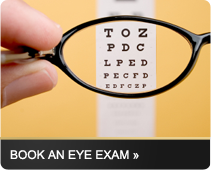
Optometrists at Cargills have undergone training by the local NHS to provide pre-operative cataract assessments and are able to use the Direct Referral Service.
Once your cataract surgery has been performed we can also provide your post-operative cataract assessment.
This service is offered at all our Cargills practices.
What is a Cataract?
Cataracts are a clouding in the lens (the transparent structure near the front of the eye) that can make vision blurred or misty. They can develop in one or both eyes, and one eye can often be more affected than the other.
Cataracts most commonly affect older people. Cataracts that affect older people are known as age-related cataracts. In the UK, it is estimated that more than half of people who are over 65 years of age have some cataract development in one or both eyes.
How is a Cataract Treated?
Treatment for age-related cataracts may not be needed if:
- you have no symptoms
- your sight is only mildly affected
In the early stages of a cataract, your vision may be improved with stronger glasses, or by using a brighter light when you read, for example. However, the improvement may not last long.
Surgery is the only way to treat cataracts that become more severe.
Your optometrist will recommend treatment if your loss of vision affects your usual daily activities. For example, if cataracts affect:
- your ability to look after yourself or someone else
- your driving
- going out
- seeing people’s faces
- your work
- reading
- watching television
Having a cataract removed is one of the most common operations in the UK.
Cataract Surgery
Cataracts are treated by having surgery to remove the cloudy lens in your eye. In most cases, the natural lens is replaced with an artificial, clear plastic lens. This is called an intraocular implant or intraocular lens (IOL).
Most cataract operations in the UK are carried out under local anaesthetic, as keyhole surgery, where a very small incision (cut) is made. You will probably be admitted as a day patient (day case), which means that you will not need to stay in hospital overnight.
The operation usually takes 15 to 30 minutes, although sometimes it can take slightly longer.
It is estimated that less than 2% of people experience any serious complications after having cataract surgery.
For further information please see the NHS webpage for Cataracts.



